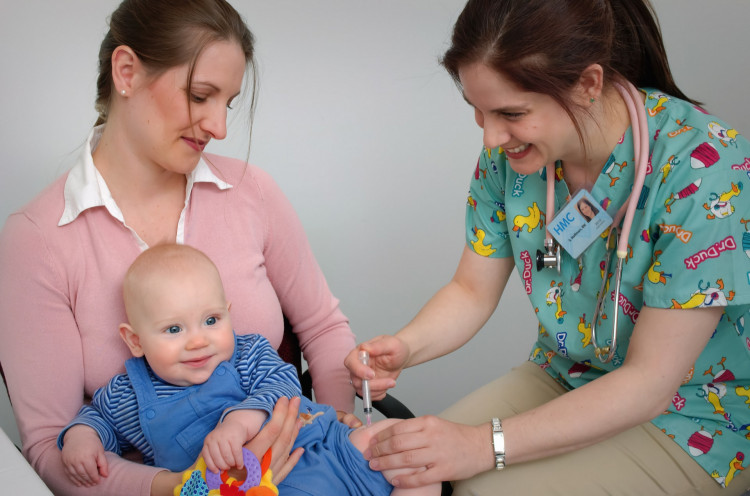With the new strain Omicron causing an increase in COVID-19 cases, public health experts in the United States say coronavirus vaccines, which are available for children as young as 5 years old, can provide an important layer of protection for children.
William Hartman, the chief investigator of one of the Moderna pediatric COVID-19 vaccination trials, told the Los Angeles Times that it's plausible to expect emergency use authorization for children aged 6 months to 5 years to be granted in late March or early April.
According to Hartman, Moderna is very likely to reach that degree before Pfizer.
Hartman, who directs the Hartman Laboratory at the University of Wisconsin, anticipates that preliminary data will be available within the next month.
Meanwhile, Pfizer Inc anticipates that the latest results from a clinical trial of the coronavirus vaccine it developed with Germany's BioNTech SE for children under the age of 5 would be available in April.
Pfizer announced in December that it was revising the trial's design because children aged 2 to 4 who received two 3-microgram doses of the vaccine did not show the same immunological response as older children who received a greater dosage of the vaccine.
Pfizer also said that it was testing a third dose of its vaccine in children aged 5 to 11, six months after their second injection.
In the U.S., the Pfizer-BioNTech COVID-19 vaccine is approved for people aged 5 and up. The Advisory Committee on Immunization Practices recommended vaccine booster injections for children aged 12 to 15 on Wednesday.
According to data from the Centers for Disease Control and Prevention released on Jan. 12, two months after Pfizer's vaccine was approved for children aged 5 to 11, only 27% have received at least one injection. Only 18% of children, or 5 million, receive both doses.
Despite staffing shortages, shutdowns, and heated debates over how to operate securely, the national campaign to vaccinate children has stalled, while the Omicron variant upends schooling for millions of children and their families.
Pediatricians are concerned about the slow pace and geographic discrepancies, especially in light of high numbers of cases and pediatric hospitalizations.
Vaccine demand skyrocketed in November, with an initial burst of enthusiasm following the vaccine's approval for younger children. However, younger children have been vaccinated at a slower rate than 12- to 15-year-olds, who were eligible in May. It took nearly six weeks for one in every five younger children to receive their first vaccination, whereas teenagers had their first dose in two weeks.






